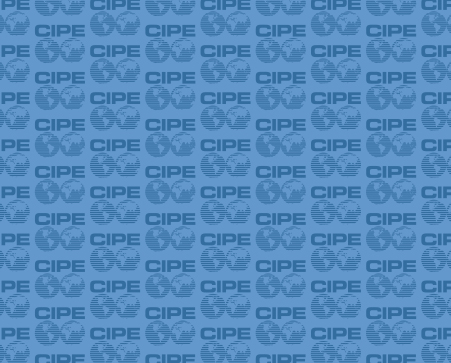
Given the importance of public procurement to development prospects – and the potential it carries for corruption-related waste – it is crucial for countries to examine how their procurement funds are spent and how the transparency of the process can be improved. That is precisely what CIPE partner Riinvest Institute for Development Research set out to do in Kosovo.
Last year, Kosovo passed an amended Public Procurement Law that has largely brought its procurement legislative framework in line with European Union’s norms. However, the implementation of the law still leaves a lot to be desired, with procurement all too often being used as a tool of political patronage. As a result, favored bidders enjoy disproportionate benefits in public tenders while many other businesses are disqualified on a technicality or simply choose not to bid. Breaking this dynamic is a challenging but not impossible task provided that more transparency and accountability is injected into the process. The necessary first step is to make the need for such reforms the subject of an open public debate involving both the government and non-governmental actors.
Riinvest has been doing just that. In the past several months, the Institute has been conducting research focused on examining not just the procurement laws and regulations on the books but also how they are being implemented (or not) in practice. In the course of that research Riinvest has been talking to various stakeholders, including a survey of 600 enterprises, to gauge their experience in the public procurement process and formulate concrete recommendations for reform.
On April 5, Riinvest organized a conference in Pristina titled “Improving the transparency and governance of public funds in Kosovo,” which was the continuation of this work. The conference gathered public procurement officials from various agencies as well as representatives from the business community and the private sector. As one of the presenters, Ilaz Duli who is a board member of the Public Procurement Regulatory Commission, emphasized, the event was the first time when all those actors came together to discuss problems with procurement transparency and potential solutions.
The work continues, as Riinvest is finalizing its research and incorporating key takeaways from the conference in a forthcoming report on the state of public procurement transparency in Kosovo. Public procurement makes up close to one fifth of the country’s GDP and this makes it one of the key drivers of the economy. As such, greater transparency is of key significance to making sure the Kosovar taxpayers’ money is spent in an efficient way – and it must be an important focus of reforms.
Published Date: April 17, 2012
